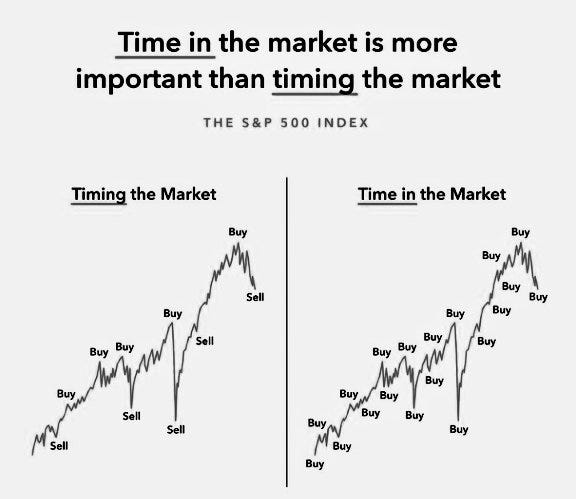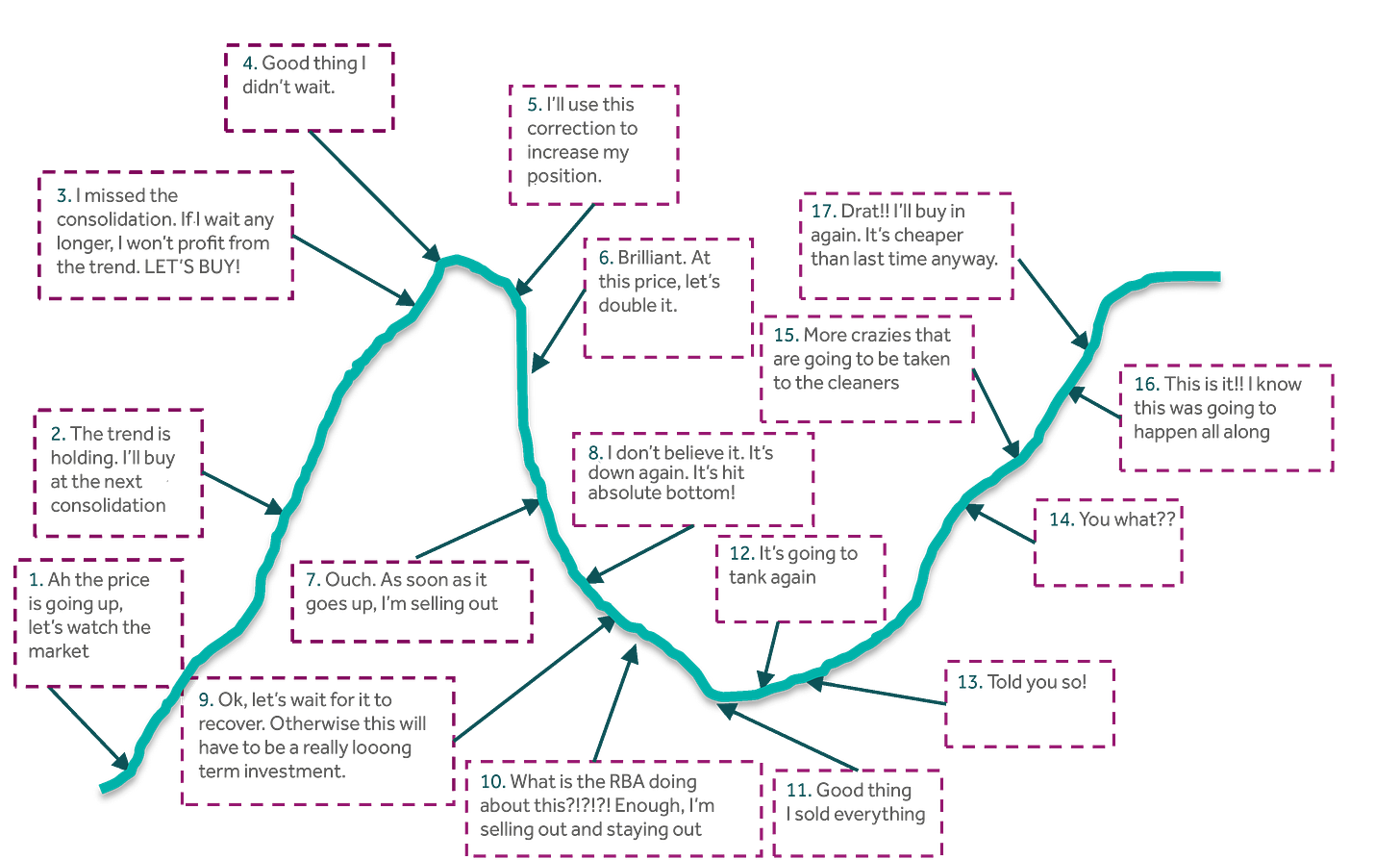Hacking longevity in the market
Time in the market is vital, but how to bias for it?
Recently I heard in a podcast that the AI driven boom in some stocks (think NVDA) will soon lead to new metrics like “price over AI” (P/AI) being used to justify super high valuations. This rung some bells in my head.
Before it gets you riled up and lose you as a reader, I have nothing against NVDA. I think it is a great company, poised to continue to grow. And don’t get me wrong, AI is going to be an important part of humanity and companies like NVDA will hugely benefit from the growth and growth of AI. However, spotting a trend alone doesn’t make good investment. Owning a great company also doesn’t make a great investment. Owning a great company at a reasonable price point is what makes a great investment. I understand that great companies are prized assets as others are willing to acquire too1, but the skill comes in knowing how far to go in acquiring a great company. Sadly I don’t have a direct answer to address this.
Over the course of my wealth building life, roughly 15 years now, I have seen multiple of these boom-bust cycles, be it crypto, SPACs, EVs etc. In each of these cycles, there is always an investor - let’s call him John. John hasn’t participated much in the market so far, but enters the market to participate in the boom M1, and end up eventually get sucked into staying through the bust cycle of M1, eventually retreating licking their wounds along the way.
Psychologically, this has an off-putting effect on John’s investment psyche, so he stays away from the market for a sizeable time and focusses on hobbies, some travelling etc while savings are accumulating along 2-3% in a savings instrument.
In the meanwhile the market has recovered from this mania, normalcy returns, markets are back up to reasonable valuation levels. It might even go through mania M2 that John completely misses out as he is busy avoiding investor friends.
Then the market moves along, and along comes M3, the third mania in John’s life. Having been convinced that the opportunity is better this time, John returns to the market, however with the same thinking and ideology as what he had when he entered M1. Do you think the results are going to be different? Sadly no.
In effect, chasing manias, and being in and out of the market can be very perilous to investors’ returns. In my writings on this substack, you must have noticed that I focus on the long term compounding opportunities of investing in high quality businesses (see 1 & 2). In the long run, outcomes for equity investors are generally very good, but how do we make sure that we stay the course?

This is where 2 learnings of my investing life, adopted from my trysts with running, have come in handy:
Run the marathon, and skip the sprints - What I mean is that if you want to stay in the market, then chasing the trend of the day is actively harmful to your intentions. It is okay to have some play money on the side to participate in these rallies, but the true wealth building contribution must stay invested in a portfolio that you have long term conviction on.
When running the marathon, don’t stop & start - When you are running the marathon, resisting the temptation to stop is ever-present, stopping for anything more than a few seconds makes it harder to resume. Investing in the long run is similar. This is why I don’t like selling stocks, because once you sell, you don’t find it easy to buy back into them, especially when the stock has gone up since you sold and so you miss out on the recovery story if there is ever one.
Fighting the mental battles in the long journey of an investor is hard. But it gets easier when you have simple constraints to help you along the way.
"Time is the friend of the wonderful company, the enemy of the mediocre."
- Warren Buffett
Combine the two principles above and you see the philosophy behind the current coffee can portfolio. I aim to (a) buy a diversified enough portfolio that has nothing to do with trends of the day and (b) look to never sell so I can make the most of the compounding opportunities. The diversification enables to me to have smaller drawdowns than those who concentrate on trends and the quality of the businesses in there ensures that time take care of the rest of the investor returns.
Be wonderful, not mediocre. Happy Investing!!
As Aswath Damodaran says in this podcast - “I have an amazing company, but I'm paying for an astonishing company, and amazing is not good enough.”



